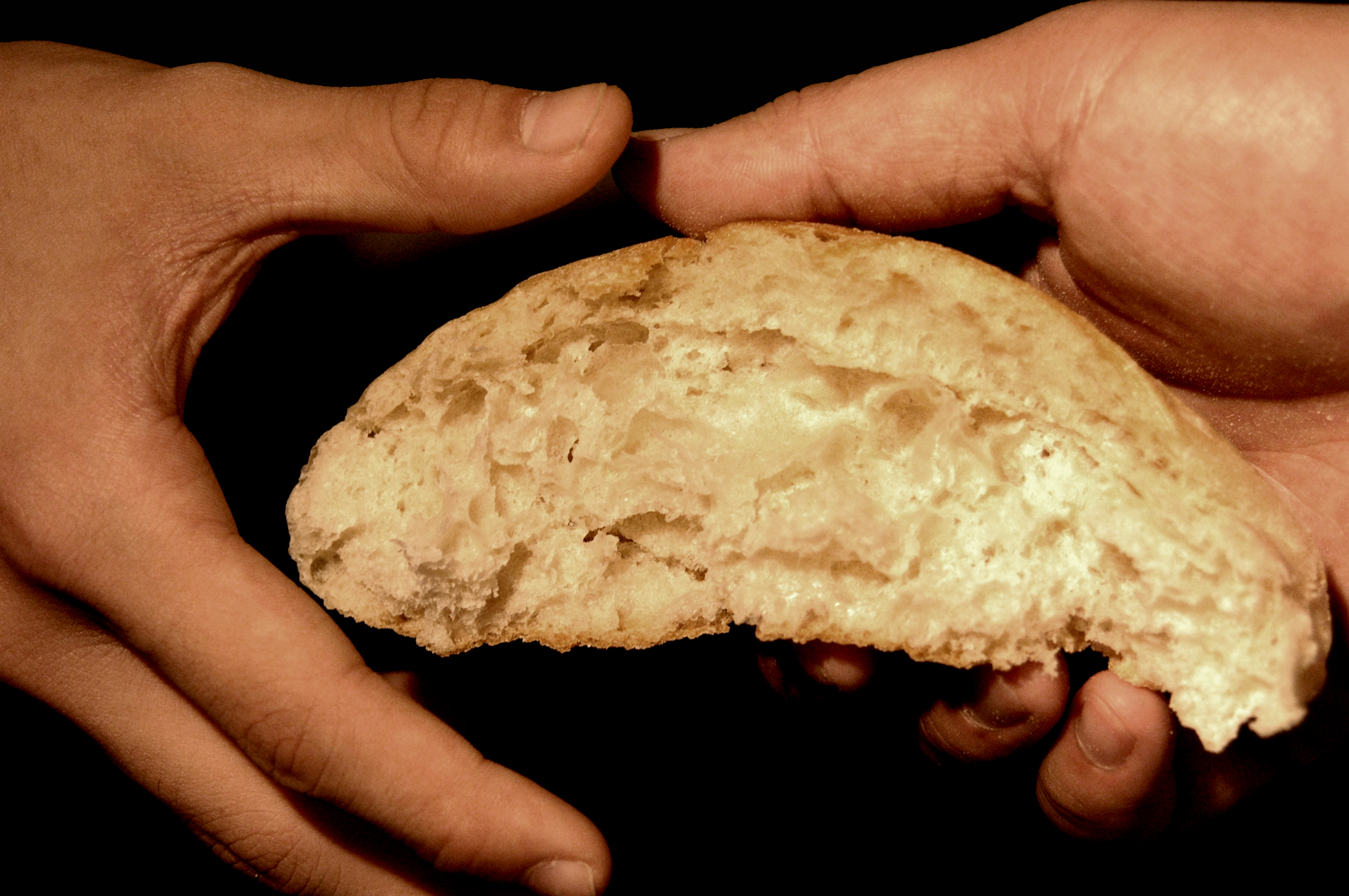The Spirituality of the Church – by Emily Morgan
(The following is a reflection from seminarian, Emily Morgan. This article will appear in Unbound: An Interactive Journal of Christian Social Justice at the end of January in an issue examining the church’s role in the public square.)
I was sitting in the class “Presbyterian History and Theology” last spring when I first heard the term “the Spirituality of the Church.” I heard a couple people chuckle, as if they had heard this term before and knew what was coming next. The professor explained that, before and during the Civil War, some Southern Presbyterians argued that the church was unfit to proclaim slavery as moral or immoral because that declaration would violate the boundaries between church and state. I doodled in the margins of my notes “seriously?” It seemed so obvious to me and the rest of the students that those who used the term “spirituality of the church” were unable to see past their own assumptions and prejudices about slavery. The Spirit was moving Christians to work publically for the abolition of slavery. Yet some got stuck in this idea of the “spirituality of the church” and fought on the wrong side of an important issue both actively and through silence. I sat back in my chair and asked myself, “How could anyone not see how horrifyingly wrong slavery is? Am I using religious excuses to turn a blind eye to important issues that Jesus would care about?”
In an increasingly pluralistic world, the main thing that differentiates Christians is Jesus. Jesus did not wait for the political systems of his day to do the right thing; he went to the margins and the centers of power. In word and deed, Jesus healed people, restoring them to a healthy relationship with their community and with God. The woman who had been bleeding for 12 years and was an outcast was suddenly recognized as a “Daughter of God.” Lepers went back to their families. The Temple was cleared to be a place of holiness, not profit. The religious and political officials were challenged for their corruption and exploitation.
Of course, the religious and political systems of the day reacted the way broken systems do—with fear; and they lashed out violently. The resurrection is about God’s love overcoming those violent systems to transform them for something holy and healing. In other words, the spirituality of the resurrection—that which distinguishes it from the status quo and marks it as sacred—is at its highest precisely because it confronts, not ignores, the world and its politics of violence.
When I think about the systems of violence that exist in our modern world, I am reminded of the theologian and poet John O’Donohue’s explanation of the root of sin: “[Sin is] woundedness that keeps you stuck and paralyzed in hungry and anxious places, and then poison comes from them that’s destructive to others” (“Imagination as the Path of Spirit,” Greenbelt Festivals, Ltd 2009). Our culture holds desperately onto the myth of scarcity to keep the poor poor as the rich get richer and the systems of violence intact. The community of the faithful is lifted up in Scripture and in history as a different kind of community.
For thousands of years, Jewish and Christian communities have claimed that God feeds them and there is no need to horde food or be fearful. God provided manna in the wilderness. The early church shared so that everyone had enough to eat. No one ate if there was not enough to share. Jesus said not to worry about what we will eat or wear. Jesus was saying more than carpe diem. He was proposing a structure for society, for if a community believes there will not be enough for everyone, then, indeed there will not be enough for everyone because some will keep more than they need out of fear.
If we use the historic rhetoric of the “spirituality of the church,” we allow our fears (of vulnerability to change and loss) to control us. History is full of faithful people who saw something wrong in their society and tried to change it based on their beliefs about the community God is calling us to be. Just in the last 100 years we can look to individuals like Rev. Dr. Martin Luther King Jr., Dietrich Bonheoffer, and Mother Teresa, as well as specifically spiritual movements like the New Monastics and non-specific like the second- and third-wave feminists, to see Christians trying to shape the world differently. However, you do not have to be a saint to see the broken systems of the world and to be guided by the Spirit as you help heal them. After all, our call as Christians is to follow Jesus who declared that the Kin-dom[i] of God is both coming and already here.
The church cannot ignore this call to live out the Kin-dom of God on earth. If we are praying for it, we must have the courage to become (through God) the answer to our own prayers and to “become the change we want to see in the world” (Mohandas Gandhi). This means active involvement in justice issues and the spiritual nurture of our communities. The processes of seeking and advocating for justice have been discussed in other places, and you can find all sorts of additional information in Unbound. However, the decision to involve your church and yourself in justice issues must be made first.
As Christians we cannot afford to work on issues without discernment from the Spirit, but we must remember that the Spirit works through communities. Our guiding theologies and principles are built upon discernment of the Spirit, and our gut instincts can be messages from the Spirit. However, our theologies, principles, and gut instincts can also keep us in cycles of violence and blind to the justice issues of our day. This is the difficulty and the beauty of Christian communities’ involvement in the world.
Touched by God’s love we cannot hold it for ourselves. We cannot withdraw from the world under the guise of spirituality. We need to run into the hurting world and transform it—or rather, witness to God’s transformation of it. I take a pledge today: I will not horde God’s love and justice, and I will not be silent when my church hordes God’s love and justice.
Will you take this pledge with me?
________________________
Emily Morgan is a student at Princeton Theological Seminary and a Candidate for Ordination in the Presbyterian Church (U.S.A.). She graduated with a BA in History in 2009 from Drury University and plans to pursue congregational and college ministry. She also recently started a website designed to reach young adults not involved in faith communities to get them thinking about issues in the 21st Century and how they relate to spirituality and religion. Read more at www.fightthebees.com.
Notes
[i] Many theologians, particularly those identifying as feminist and post-colonialist, use the term “kin-dom” instead of “kingdom” because the former conveys familial and mutual relationality, while the latter implies hierarchy and dominance.



Pingback: Article on Ecclesio |
Emily, blessings on your journey. May this be “That Spark” that gets a spiritual fire going. But be mindful, your efforts may be like a little boat of caring in a huge ocean of indifference/resistence, maybe like crossing the Red Sea again. Still, my prayers and hopes are that a sea of real justice and changes are coming.